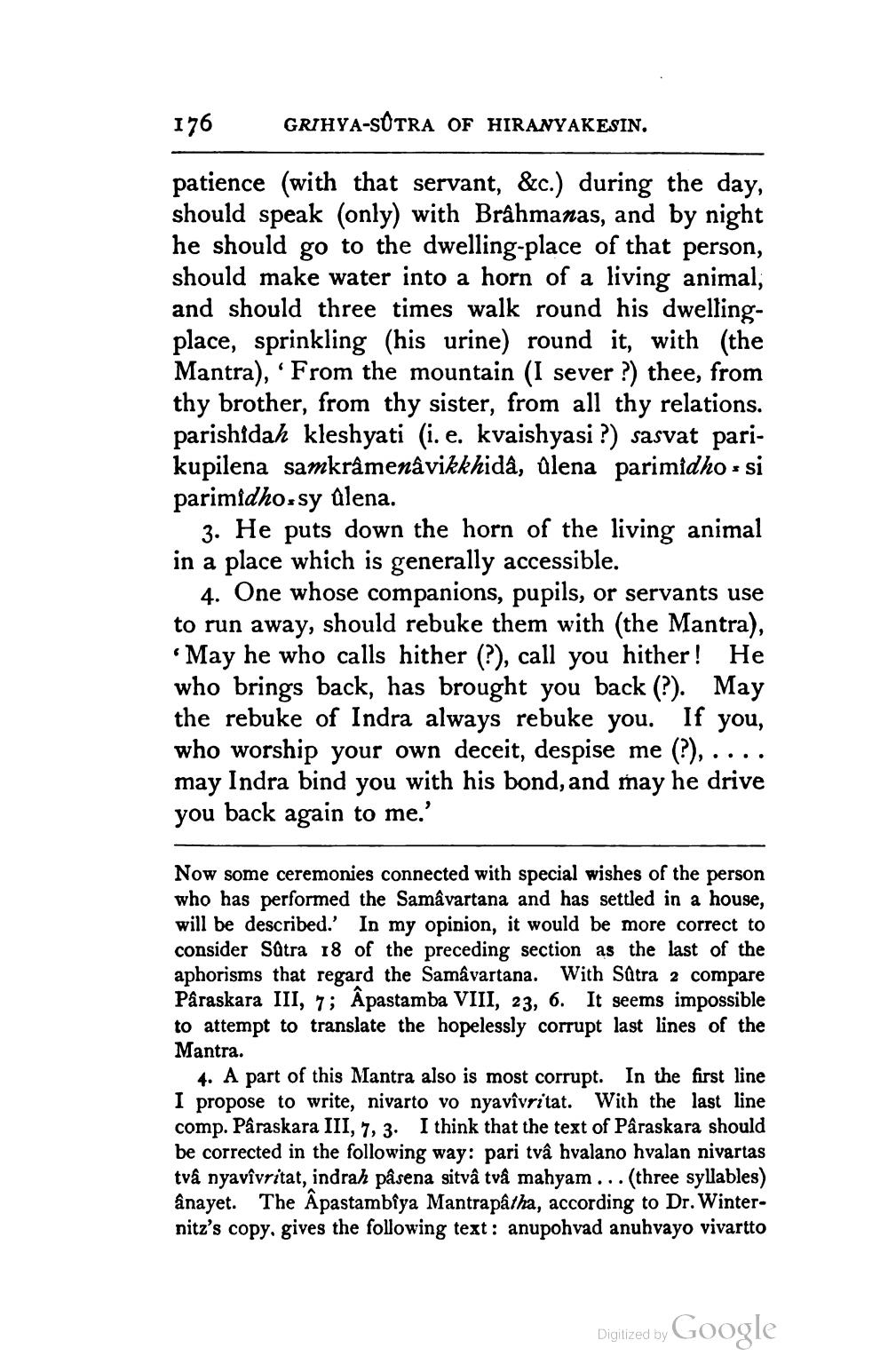________________
176
GRIHYA-SÚTRA OF HIRANYAKESIN.
patience (with that servant, &c.) during the day, should speak (only) with Brâhmanas, and by night he should go to the dwelling-place of that person, should make water into a horn of a living animal, and should three times walk round his dwellingplace, sprinkling (his urine) round it, with (the Mantra), ‘From the mountain (I sever ?) thee, from thy brother, from thy sister, from all thy relations. parishidah kleshyati (i. e. kvaishyasi ?) sasvat parikupilena samkrâmenâvikkhidâ, dlena parimidho - si parimidho sy alena.
3. He puts down the horn of the living animal in a place which is generally accessible.
4. One whose companions, pupils, or servants use to run away, should rebuke them with (the Mantra),
May he who calls hither (?), call you hither! He who brings back, has brought you back (?). May the rebuke of Indra always rebuke you. If you, who worship your own deceit, despise me (?), .... may Indra bind you with his bond, and may he drive you back again to me.'
Now some ceremonies connected with special wishes of the person who has performed the Samâvartana and has settled in a house, will be described.' In my opinion, it would be more correct to consider Sätra 18 of the preceding section as the last of the aphorisms that regard the Samâvartana. With Satra 2 compare Paraskara III, 7; Âpastamba VIII, 23, 6. It seems impossible to attempt to translate the hopelessly corrupt last lines of the Mantra.
4. A part of this Mantra also is most corrupt. In the first line I propose to write, nivarto vo nyavivritat. With the last line comp. Paraskara III, 7, 3. I think that the text of Paraskara should be corrected in the following way: pari två hvalano hvalan nivartas två nyavîvritat, indrah påsena sitvå två mahyam ...(three syllables) ânayet. The Âpastambiya Mantrapâtha, according to Dr. Winternitz's copy, gives the following text: anupohvad anuhvayo vivartto
Digilized by Google




